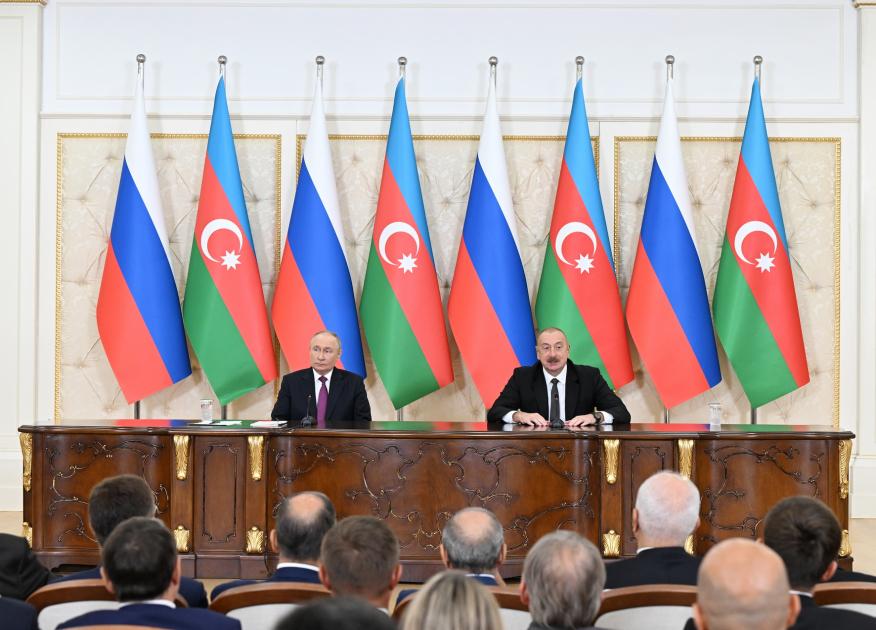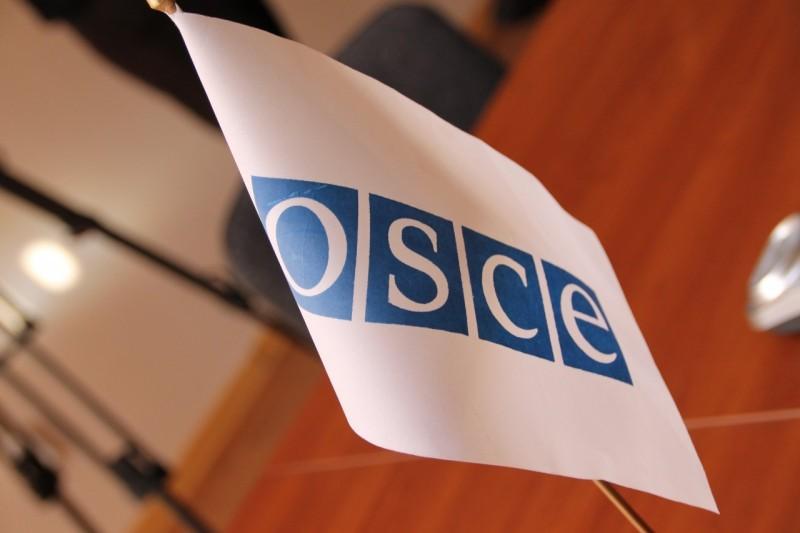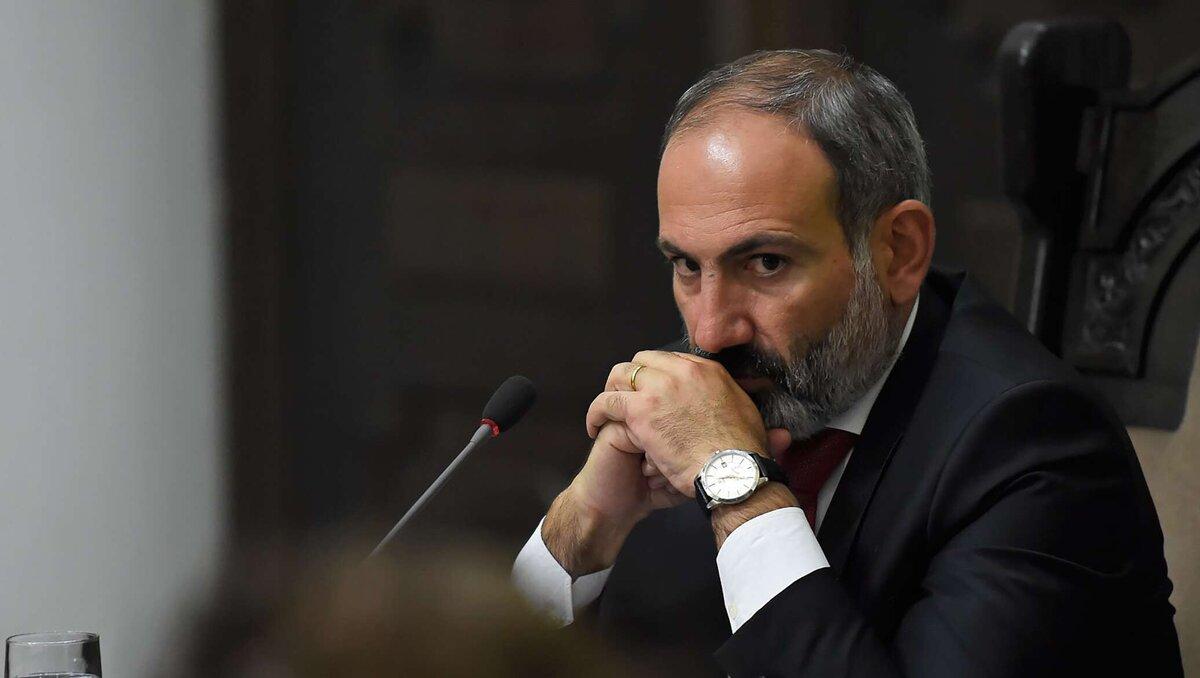Azerbaijan shaping future Bold steps towards progress
Creating a better future for Azerbaijan and the South Caucasus involves more than simply reclaiming land taken by Armenian nationalists.
It also necessitates the restoration of communication and economic ties both within the region and with neighbouring countries and regions. This will be supported by decisions made during Russian President Vladimir Putin's recent visit to Azerbaijan. This event also marks a shift in Kremlin policy, breaking from Gorbachev-era support for Armenian expansionism.

There is no basis for claiming that Azerbaijan is undergoing a "reorientation." This is evident from the joint statement made by Aliyev and Putin during the visit, which highlights the priorities of their allied relationship. The statement references the relevant Declaration of 2022 while also emphasizing the role of the Shanghai Cooperation Organisation (SCO).
Additionally, the Russian side supported the elevation of Azerbaijan’s status within the SCO and acknowledged its interest in cooperating with BRICS. Recently, Azerbaijan actively participated in the SCO summit in Astana and has recently announced its application for BRICS membership. Its comprehensive, multi-vector foreign policy has enabled the Azerbaijani leadership to pursue groundbreaking solutions with neighbouring countries independently of third-party opinions, even those of global powers. This approach embodies true sovereignty.
The Kremlin draws a line
This time, Putin visited Azerbaijan on a state visit—the highest level for such events. His previous visit to Baku occurred six years ago, in a different historical context, and at that time, the visit was more modest in scope. His current visit marks a conclusion to Russia's re-evaluation and acceptance of the strategic changes that have occurred in the region over these years, following Azerbaijan's restoration of its territorial integrity.
This process took time, which is not surprising given the backdrop of Russia-Armenia relations, including Russia's long-standing large-scale military presence in Armenia and the influence of the Armenian diaspora in Russia. However, the Russian leadership has signaled its intention to develop relations in this new geopolitical reality. This was made evident by a symbolic politically significant gesture—President Putin’s visit to the "Alley of Martyrs," where those who died fighting against Armenian nationalists attempting to seize Azerbaijani territory are buried. The Russian leader's statement at the end of the visit was particularly significant. Reflecting on the discussions with President Aliyev about potential Russian support in the normalization process in the South Caucasus, he promised: "Of course, after my visit to Azerbaijan, I will reach out to Prime Minister Pashinyan and brief him on the results of our negotiations." However, in the context of recent developments, the assistance in the settlement of the situation in South Caucasus mentioned by Putin primarily signifies efforts to counteract the effective sabotage of the peace process.
Although Baku and Yerevan have recently been working on a peace treaty and preparing for normalization of relations without intermediaries, last week Armenia's Foreign Ministry took a dangerous step towards undermining this process. It proposed reconsidering the continuation of the so-called Minsk Group of the Organization for Security and Co-operation in Europe (OSCE).

The End of Experiments with Corpses
By proposing to reconsider the continuation of the Minsk Group, Yerevan rejected the call from Azerbaijani leadership to disband the OSCE Minsk Group. President Aliyev had stated in June that such a move would reveal the true intentions of the negotiating parties. “We have already proposed to the Armenian side that Azerbaijan and Armenia jointly appeal to the OSCE to dissolve the Minsk Group. There is no need for it; it is currently inactive. We will not allow it to function in practice. As for the legal aspect, it should be formally dissolved, which will demonstrate how sincere Armenia is,” the president stated.
The OSCE Minsk Group was established in 1992 ostensibly to mediate and facilitate the resolution of the conflict between Azerbaijan and Armenia. In practice, it quickly became a largely ineffective body, failing to assist Azerbaijani victims of Armenian nationalist aggression. Instead, it facilitated the gradual legitimization and international endorsement of the results of Armenian territorial expansion and the occupation of Azerbaijani lands. This situation was influenced by the composition of the group, which was co-chaired by the US, France, and Russia—countries with traditionally strong Armenian lobbies in the state structures. The calls to revive its activities are not only a mockery of common sense given the dismal track record of this overextended body. In light of the semi-military tensions between the West and Russia, this group will be ineffective under current circumstances, merely prolonging and stalling any issue for years, if not decades. What more can be said about the Minsk Group?
Following the start of the Russia-Ukraine war, the OSCE itself has nearly ceased functioning, along with other international platforms involving Russia and the West. In other words, the Armenian side suggested that everyone delve into absurdity. However, judging by recent statements from Putin, Moscow does not intend to support Yerevan's attempts to revive the OSCE Minsk Group or similar initiatives. This is also indicated by other recent actions taken by the Russian side. Russian Foreign Minister Sergey Lavrov has recently directly accused the Armenian government of sabotaging agreements on restoring transportation routes in the region.
Throughout the week, both the Armenian Foreign Ministry and various activists have relentlessly criticized him for this accusation. Lavrov pointed out that Yerevan is failing to implement the relevant provision of the trilateral agreement among Baku, Yerevan, and Moscow dated November 9, 2020, regarding the unblocking of transportation routes between mainland Azerbaijan and Nakhchivan. The current Armenian leadership openly reveals its intention to pursue a different plan—"Crossroads of Peace" proposed by Prime Minister Pashinyan last year—rather than the 2020 agreements. This plan is being advanced with support from France and other Western countries.

Pashinyan loses a key market
The official list of documents signed during Putin’s visit to Baku did not include agreements in the energy sector. However, these issues were discussed in various formats during the negotiations. Accompanying President Putin was a delegation from Gazprom, and subsequently, Chairman Alexey Miller announced, "We are discussing the 'North-South' project and the signing of a comprehensive scientific and technical cooperation program between SOCAR and Gazprom in September." Agreement was reached to expand multifaceted strategic partnership. Indeed, at the start of the visit, Russian Deputy Prime Minister Alexander Novak announced the consideration of a new project in the Caspian shelf. Currently, Russian LUKOIL holds a 19.99 per cent stake in the Shah Deniz project. Russian sources also indicate that the Kremlin is interested in accessing Azerbaijan’s gas transportation system, known as the Southern Gas Corridor, which would enable the export of Russian gas in various directions. However, two agreements signed this week with seemingly modest titles, yet potentially capable of leading to significant political changes.
These are the intergovernmental Agreement on Cooperation in Plant Quarantine and Protection and the Agreement between the Azerbaijan Food Safety Agency and Russia's Federal Service for the Oversight of Consumer Protection and Welfare (Rospotrebnadzor) on Collaboration in Food Safety. In practice, this paves the way for an increase in Azerbaijan's agricultural and food product exports to Russia. This (along with similar exports from Türkiye and other countries) serves as a natural alternative to comparable products from Armenia.

Recent news regarding quality concerns over Armenian products in this category indicates that Russian companies are already seeking alternatives. This not only strengthens Azerbaijan's position in the Russian market but also poses a significant challenge for Pashinyan.
Redirecting these goods to Western markets is unlikely to succeed for Pashinyan. Access to agricultural markets, such as those in the EU, is highly regulated, and these markets are already well-established. Changes in market dynamics are often met with strong resistance. In other words, by delaying the normalization process with Azerbaijan and attempting to exploit the Russia-West conflict, Yerevan has only weakened its international position. If this course continues, Armenia's situation is likely to deteriorate further in the long term, leading to a straightforward consequence: a decrease in financial resources. Armenians may soon lose their crucial Russian market, even though current trade statistics with Russia might create an illusion of prosperity. Last year, Armenian-Russian trade reached $7.3 billion, largely due to circumventing anti-Russian sanctions, compared to just $2.5 billion in the last pre-COVID and non-war year of 2019.
Despite making bold statements about turning to the West and directly threatening the Russian president, Yerevan continues benefitting from business activities related to anti-Russian sanctions. In comparison, for the first half of 2024, trade turnover between Russia and Azerbaijan increased by over 5 per cent, reaching $2.5 billion. While this is less than the trade volume between Russia and Armenia, it represents a stable and genuine growth.

This stands in contrast to the inflated and potentially unstable “bubble” of record trade figures between Russia and Armenia, which could burst at any moment. Unlike Yerevan, Baku refrains from engaging in superpower rivalries. Instead, it focuses on expanding constructive cooperation with its vast neighboring country, pursuing mutual interests and those of adjacent regions such as the South Caucasus and the Caspian region.
A sensible government and responsible politician would not sacrifice peace and development in their immediate surroundings merely to please the West. True peace and progress are unattainable without fostering strong relationships with neighbouring countries, especially Russia. By the way, the attempts by certain Armenian revanchists to portray Azerbaijan-Russia relations in a false light will not only fail, colliding with basic facts and statistics, but they will also be ineffective for another fundamental reason. In contemporary global politics, a genuinely sovereign stance by a state—particularly one capable of defending itself—always compels major international players to take it more seriously.
A recent example of this is the shift in relations between Saudi Arabia and the United States over the past couple of years. As soon as Riyadh strengthened its ties with China, Washington began to retract its previously imposed demands on the Saudi government. The Americans suddenly became more accommodating, even regarding the most sensitive security issues. Thus, Azerbaijan's efforts to maintain cooperation with all friendly nations are well-founded and will not be undermined by external pressures.








